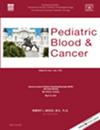Vascular anomalies (VAs) are a spectrum of rare pediatric disorders that require coordinated care from multiple subspecialists. Parents often struggle to coordinate care for their child's complex rare disorder. Even when they do access expert care, parents of children with VAs report high levels of stress and uncertainty. While previous research has explored parents’ experiences navigating care for VAs, we know very little about how parents cope with stress together. Given the effect that dyadic coping can have on individual, couple, family, and child outcomes, we aimed to gain a better understanding of dyadic coping in the context of VAs.
We collected data using semi-structured interviews with 27 parents (13 dyads and one individual parent). Data were analyzed using dyadic thematic analysis.
Parents experienced stress related to medical, personal, logistical, and financial aspects of their child's healthcare. They relied on eight coping strategies: active coping, seeking emotional support, seeking informational support, cognitive avoidance, distraction, cognitive reframing, acceptance, and internalization. When analyzed together, we found evidence of five dyadic coping dynamics: collaborative, supportive, delegated, separate, and negative.
Dyadic coping is complex and multilayered for parents of children with VAs. While the child's diagnosis is considered a shared stressor, both parents may not share preferred coping strategies. Parents of the same child may also be coping with different medical, relational/social, personal, or logistical stressors altogether. Psychosocial interventions designed to facilitate parental coping should address these complex coping dynamics.



